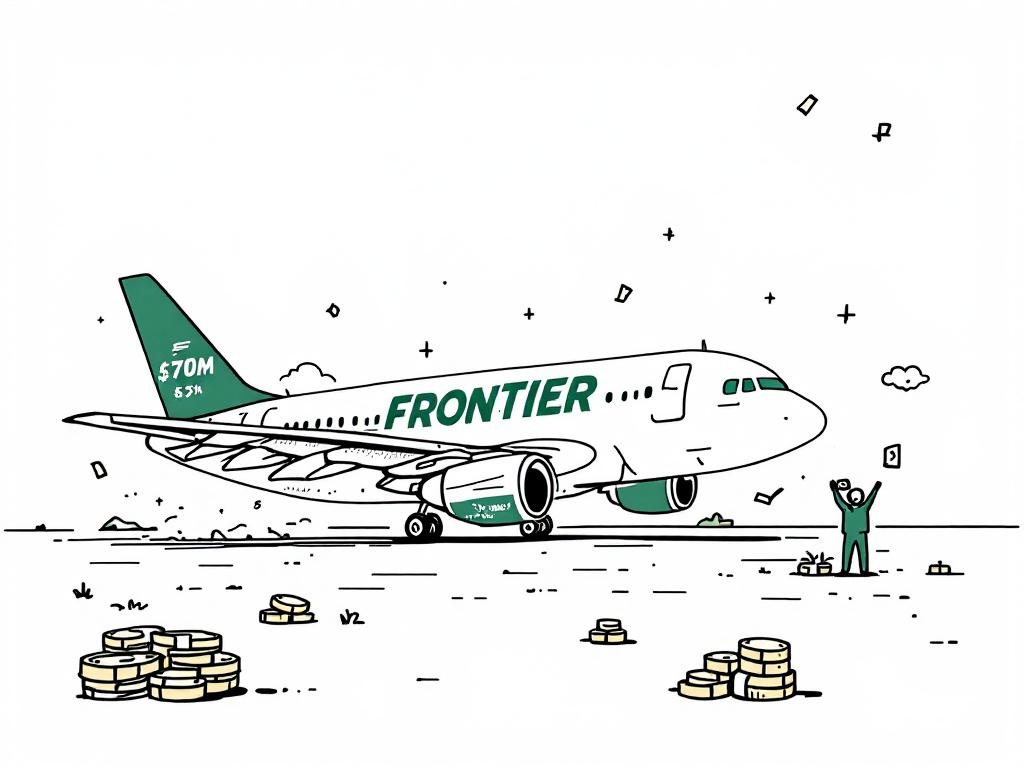Frontier Airlines Faces Major Loss amid Rising Operating Expenses

Denver, Tuesday, 5 August 2025.
Frontier Airlines reported a $70 million net loss for Q2 2025, primarily due to an 8% increase in operating expenses, while revenue dropped by 5% compared to the previous year.
Financial Performance Overview
Frontier Group Holdings, Inc. (Nasdaq: ULCC), the parent company of Frontier Airlines, reported financial results indicating significant challenges for the second quarter of 2025. Operating revenues for Q2 totaled $929 million, marking a decrease of 5% from the $973 million recorded during the same period in 2024. Meanwhile, operating expenses surged by 8% to $1,004 million compared to the previous year, culminating in an operating loss of $75 million. These figures underscore persistent difficulties in the airline’s operating environment, reflecting broader trends in the industry [1][2][3].
Impact of External Factors
Frontier Airlines’ operational hurdles in Q2 2025 were compounded by external disruptions, notably adverse weather conditions and air traffic control delays which impacted flight schedules and capacity. As stated by CEO Barry Biffle, while the airline’s results were within guidance, the conditions in late May and June strained operations significantly. These factors contributed to reduced operational efficiency, as evidenced by a 4% decrease in passenger numbers and a 1% decrease in revenue passenger miles compared to Q2 2024. Despite these challenges, Frontier remains committed to cost-saving measures and strategic fleet enhancements, having received three A321neo aircraft in the quarter [2][3][4].
Guidance and Market Expectations
Looking ahead to the third quarter, Frontier Airlines has issued guidance indicating an anticipated net loss per share ranging from -$0.42 to -$0.26. This is notably below market expectations and reflects continued uncertainties. Frontier’s leadership remains optimistic about future operational balance improvements, driven by potential growth in domestic travel demand and strategic commercial initiatives. However, they acknowledge that maintaining liquidity and cost management will be critical amid ongoing economic fluctuations [3][4][5].
Fleet Modernization and Future Prospects
As part of its efforts to modernize and optimize its fleet for fuel efficiency, Frontier Airlines signed a significant agreement with Pratt & Whitney in July 2025. This involves the acquisition of PW1100GTF engines for 91 Airbus A321neo aircraft, expected to start delivery in late 2026. Such strategic moves aim to bolster Frontier’s position as a leader in fuel efficiency among U.S. carriers, aligning with their branding as ‘America’s Greenest Airline.’ These efforts are crucial for long-term competitiveness, especially amid current financial losses and the need to respond agilely to evolving market demands [1][4][5].